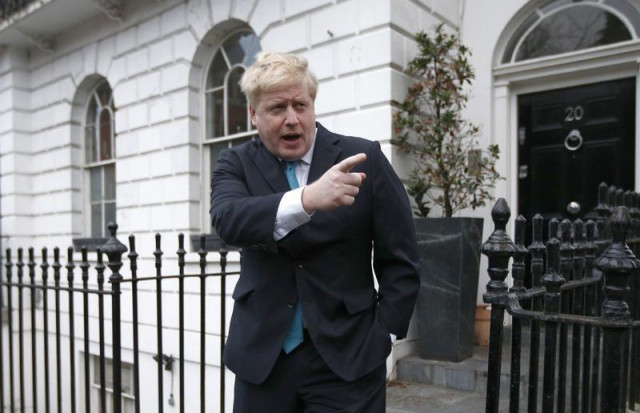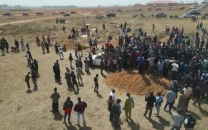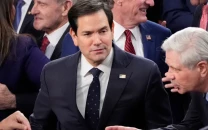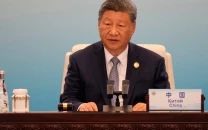Britain backs kicking North Korean workers out of EU
'There are sanctions you can impose, you can send them back and there's a wide measure of support for that'

London Mayor Boris Johnson prepares to speak to the media in front of his home in London, Britain. PHOTO: REUTERS
Foreign minister Boris Johnson told AFP there was a "wide measure of agreement" among his EU counterparts to forge ahead with new measures against Kim Jong-Un's regime after it carried out its sixth nuclear test on Sunday, its most powerful to date.
Washington is pushing for a UN Security Council vote on a resolution calling for tough new measures on the North, including an oil embargo, an asset freeze on Kim and an end to payments of North Korean guest workers.
In Russia, Japan PM urges 'greatest possible pressure' on North Korea
Johnson said talks with his EU counterparts in Tallinn on Thursday had produced a "very very wide measure of agreement" on the need to do more to pile pressure on Pyongyang to abandon its nuclear programme.
"In a lot of EU countries there are a lot of DPRK workers who are sending remittances back to North Korea," Johnson said. The North's official name is the Democratic People's Republic of Korea (DPRK).
"There are sanctions you can impose, you can send them back and there's a wide measure of support for that," Johnson told AFP during a visit to British troops on a NATO base in northern Estonia.
When asked, Johnson confirmed he supported sending North Korean workers home from the EU.
Overseas workers, most of them posted in China and Russia, are a key source of revenue for Pyongyang. European diplomats say there are around 300 North Korean workers in the bloc, most of them in Poland
While the number is not huge, Germany's Foreign Minister Sigmar Gabriel on Thursday said it was important to move against them "because the money which is earned there, has only the purpose to be channelled into the nuclear programme".
Iran says US threats against North Korea are danger to world
Gabriel also said EU ministers had agreed to do more to track where the North is obtaining the technology it is using to develop nuclear weapons and missiles.
"If we know... where the material comes from to build missiles, to build nuclear weapons, I think that we have to put those counties under economic preassure in order to stop this," he said.
Efforts to boost sanctions face resistance from Russia and Pyongyang's chief ally China, which has long been reluctant to take measures that could trigger instability or a refugee exodus on its border.



















COMMENTS
Comments are moderated and generally will be posted if they are on-topic and not abusive.
For more information, please see our Comments FAQ